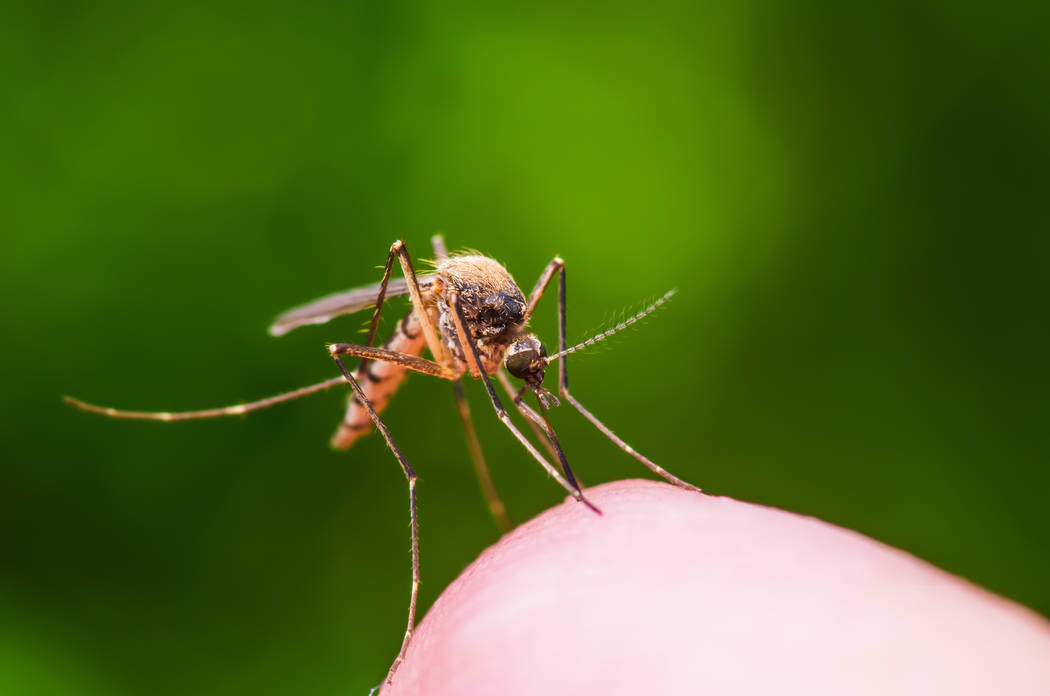Clark County on pace for one of worst years for West Nile virus
The Southern Nevada Health District on Tuesday confirmed a 12th case of West Nile virus, putting the county on pace for one of the worst years for the mosquito-borne illness since it was first detected here in 2004.
Clark County typically experiences 10 or fewer cases each year, with a high of 26 cases in 2009 and no cases reported in either 2010 or 2018.
Unusual this year is the high rate at which mosquitoes are testing positive for the virus, said Devin Raman, senior disease investigator for the health district.
This year, 17 percent of mosquitoes have tested positive for West Nile virus or St. Louis encephalitis, another mosquito-borne illness, she said. In contrast, a mere 0.1 percent tested positive last year and just 2.8 percent in 2017.
“Unfortunately, we don’t know why some years (positive) rates are very high and some years they are very low,” Raman said. Mosquitoes become ill by feeding on infected migratory birds. Humans in turn become infected when they are bitten by infected mosquitoes.
Plenty of rain this spring and mild temperatures also have played a role in the uptick in cases.
“That’s the right circumstances for mosquitoes to breed,” she said.
The new case reported Tuesday involves a male over the age of 50 with a neuroinvasive form of the illness. Ten of the 12 cases reported to the Health District have been this more serious form of the illness, which can be fatal. The district has documented no fatalities from the virus this year.
Cases of West Nile Virus occur during mosquito season, which is April through November.
Most people infected with the virus do not feel sick. About 1 in 5 people who are infected develop a fever and other symptoms, according to the Centers for Disease Control. About 1 out of 150 infected people become seriously ill.
There are no vaccines or medications to prevent West Nile virus. Health officials recommend wearing long sleeves and long pants to keep mosquitoes at bay.
The health district also recommends the following:
— Using insect repellents registered with the Environmental Protection Agency that contain DEET, picaridin, IR3535, oil of lemon eucalyptus (OLE), or 2-Undecanone.
— Eliminating areas of standing water around your home, including noncirculating ponds, “green” swimming pools and accumulated sprinkler runoff, which support mosquito breeding.
More information on mosquito-borne illnesses can be found at SNHD.info and healthysouthernnevada.org.
Contact Mary Hynes at mhynes@reviewjournal.com or 702-383-0336. Follow @MaryHynes1 on Twitter.
RELATED
3 new West Nile virus cases reported in Southern Nevada
2 new West Nile virus cases reported in Southern Nevada
Agency warns of outbreak of mosquito-borne illness in Clark County


















